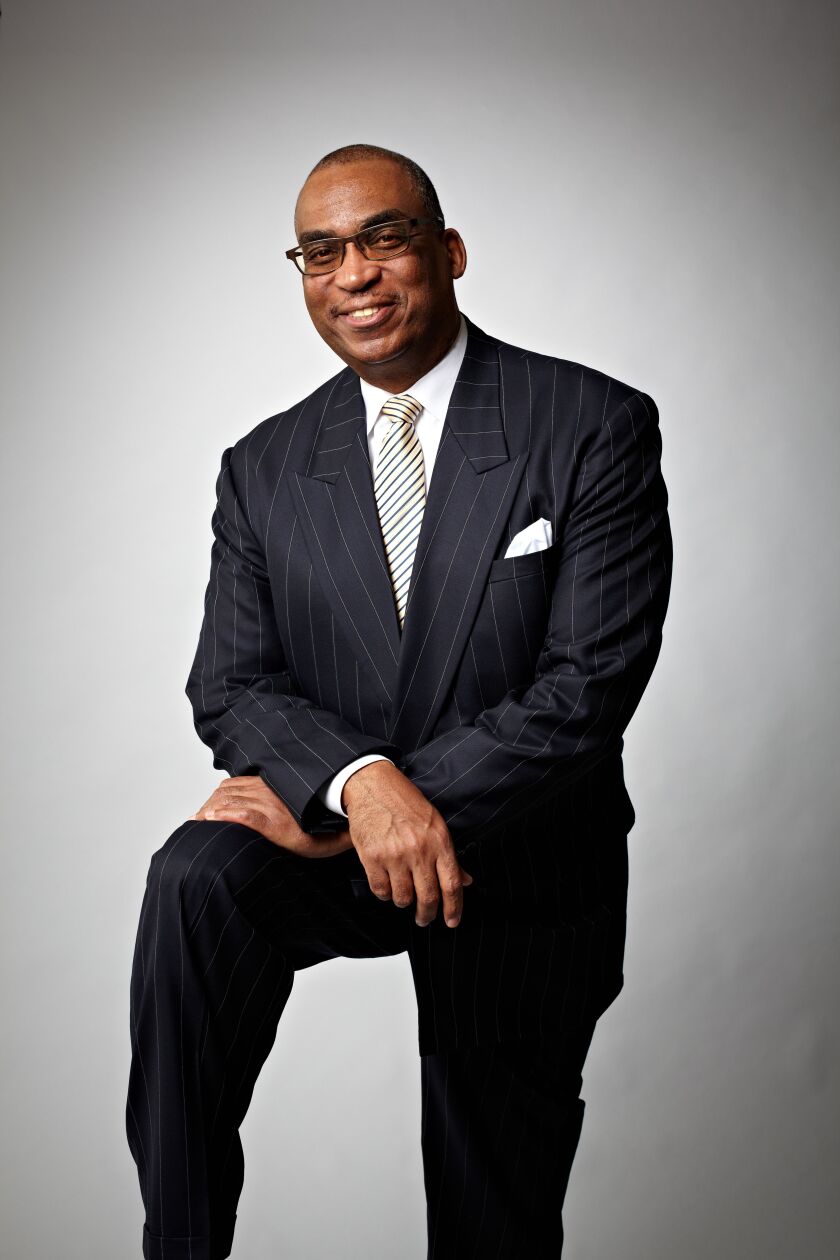Steven S. Rogers grew up in Englewood on his way to becoming a Harvard Business School instructor and advisor to Fortune 500 companies, a career path that in and of itself merits respect.
He caught my attention five years ago while leading a group of Englewood property owners in their fight to block the Norfolk Southern railroad’s efforts to forcibly take their land through the power of eminent domain.
Rogers says he won that battle, although the details of a recent court settlement are not yet public. Now, he’s aiming even higher.
In a new book, “A Letter To My White Friends And Colleagues: What You Can Do Right Now to Help the Black Community,” Rogers sets forth in straightforward language his case for eliminating the wealth disparity between Black and white Americans.
Rogers believes that gap — he cites a study showing white Americans with an average net worth of $170,000 compared to $17,000 for Black Americans — is the crux of the nation’s racial tensions, more so than racism itself.
Until Black people are on a more equal financial footing, the United States will never be able to overcome its original sin of government-sanctioned slavery and the blatantly discriminatory laws and policies — from the Black Codes to mortgage redlining — that persisted into our own lifetimes, Rogers argues.
Rogers’ solution, in essence, is for white people to share the wealth. He has specific suggestions on how to do that, some of which are more controversial than others.
“Frankly, we can’t pull ourselves out of this by ourselves,” Rogers told me as we talked last week in the backyard of his northwest Evanston home.
I sat down across from Rogers as a white guy who grew up in a community with no Black people and lots of racist thinking. I’ve tried to do better in my own life, but maybe I should have put more effort to it.
Since the murder of George Floyd and the unrest that followed, I have struggled to find the right things to say, opting more often than not to say nothing.
Giving Rogers a platform on this Juneteenth week is my way of taking baby steps back into the conversation.
Rogers devotes part of his book to establishing his credentials to lead the conversation. I’m just going to stipulate he’s qualified.
Rogers is a self-described “race man.”
“I call myself a race man, because my life is devoted to the uplifting of the Black community,” he explained. “I see things through the lens of what’s in the best interest of Black people. I’m not one who says I don’t see race.”
In his book, Rogers suggests four practical steps white people can take to help the Black community, all of which mirror his own personal practices.
For starters, he recommends giving 8.46% of our annual charitable donations over the next five years to one or more of the nation’s HBCUs, the Historically Black Colleges and Universities.
These are the schools that were created when Blacks were intentionally denied admission to the nation’s mainstream institutions of higher learning and which still play an important role today in educating Black students who otherwise could not afford a college education.
Why 8.46%? Rogers says he picked that number to match the 8 minutes, 46 seconds that Minneapolis police officer Derek Chauvin kneeled on George Floyd’s neck. The next printing of his book will change it to 9.21% in recognition of trial testimony indicating Chauvin was on Floyd’s neck even longer, he said.
Not terribly scientific perhaps, but let’s note it’s in the ballpark of 10%.
In a similar vein, Rogers suggests putting 8.46% of your bank savings in a black-owned bank and leaving it there for three years.
Black-owned banks do more to help Black businesses and homeowners, he argues, and the money is as safe as it would be in any other FDIC-insured bank.
One problem is there are only 21 black-owned banks left in the country, four of them in Illinois, according to Rogers.
He also asks people to devote 8.46% of their household budget to supporting black-owned businesses, which he says are more likely to hire black workers. His book offers some hints on how to find them. Google helps.
That leaves us with Rogers’ last and biggest ask: Write a letter to your congressman in support of reparations.
Rogers believes every Black American age 18 and over who is descended from African slaves should receive a check from the U.S. government for $153,000 — the difference between the aforementioned average net worth of whites and Blacks.
The estimated $3 trillion cost would be less than the government spent to bail out the banks in 2008, he notes.
Even if we took all his other advice, Rogers says that won’t really solve the problem unless reparations are paid.
Most white people have a hard time wrapping their minds around reparations. I’m coming around.
I see some things here I could do. I hope some of you will, too. Maybe some day we can put this behind us and move forward together.







